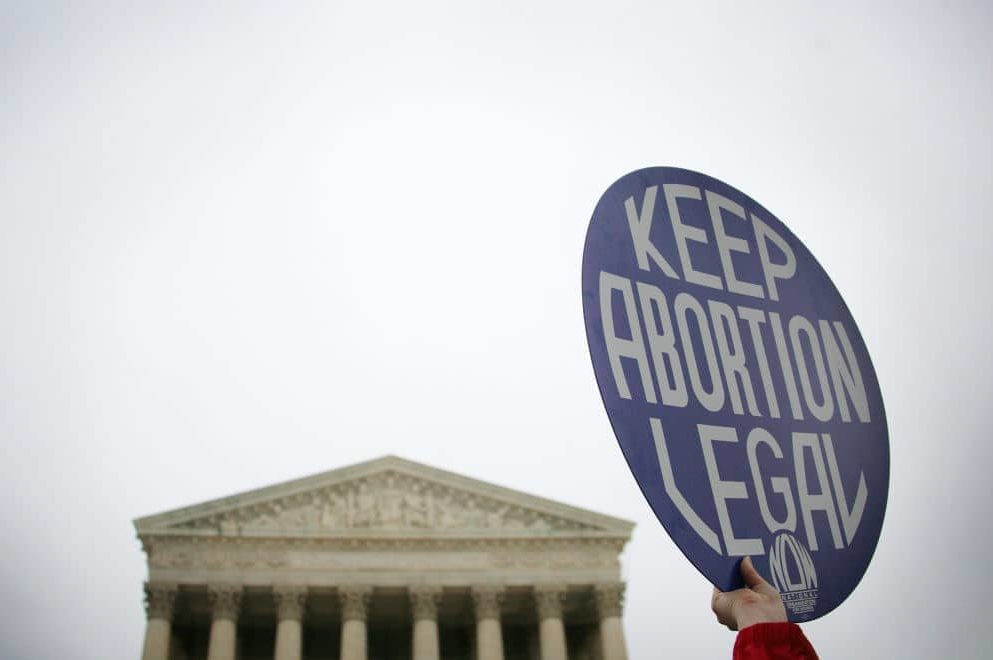Abortion is a nuclear bomb of an issue, planted at the core of American liberalism. And it just went off. That’s why police in Washington, DC have put up barriers around the Supreme Court, following the extraordinary leak of a draft opinion that could overturn Roe v. Wade. Everybody now expects protests outside the court and all over the world.
The leak itself is an extraordinary story. A draft opinion from a Supreme Court Justice has never leaked before. The fact that it has suggests a serious controversy within the institution. Politico broke the story, and says it obtained the document from a person familiar with the court’s deliberations. Whoever gave Politico the story clearly wanted to cause a lot of trouble.
The majority draft opinion, written by Justice Samuel Alito, is a clear rejection of the court’s 1973 Roe v. Wade ruling as well as a subsequent 1992 Planned Parenthood v. Casey decision. Alito wholeheartedly refutes the most common defense of abortion under US law — which is to argue that a woman’s right to terminate her pregnancy accords with the 14th Amendment to the US Constitution, which rules that individual states cannot enforce laws that “abridge the privileges or immunities of citizens of the United States.”
The Alito draft opinion argues unambiguously that the US Constitution does not enshrine any right to abortion on such grounds. “We hold that Roe and Casey must be overruled,” the justice writes. “It is time to heed the Constitution and return the issue of abortion to the people’s elected representatives.”
“Roe was egregiously wrong from the start. Its reasoning was exceptionally weak, and the decision has had damaging consequences. And far from bringing about a national settlement of the abortion issue, Roe and Casey have enflamed debate and deepened division.”
Alito declares, with finality, “the inescapable conclusion is that a right to abortion is not deeply rooted in the Nation’s history and traditions.”
A majority draft “opinion of the court” is not the same as a Supreme Court verdict. It is not finalized and could yet change if any of the justices change their mind — which could happen in the coming days. According to Politico, four other justices — Clarence Thomas, Neil Gorsuch, Brett Kavanaugh and Amy Coney Barrett — had voted with Alito, meaning that a majority on the court supports the decision.
If it stands, the ruling would mark a triumph for the pro-life movement in the US, which has spent decades trying to bring down the legal structures that upheld the idea of a federal right to abortion in the United States. The Federalist Society, for instance, was intimately involved in moves to pressure the Republican Party to appoint conservative justices to the Supreme Court, to counteract what it perceived as a left-liberal bias on the court. Their efforts bore fruit during the presidency of Donald Trump, as Trump nominated Neil Gorsuch, Brett Kavanaugh and Amy Coney Barrett to the Supreme Court.
It’s hard to exaggerate just how significant this news could be. The term “culture wars” today is applied to almost everything, from trans rights to free speech to mask mandates to Putin and cancel culture. But the “culture war” as we know it in many ways began with the debate over abortion, a subject that still divides America very sharply. By returning the issue of a “woman’s right to choose” to America’s elected representatives, and perhaps back to states’ rights, the Supreme Court could be about to trigger a political firestorm that will define the Biden presidency.
This article was originally published on The Spectator’s UK website.


















